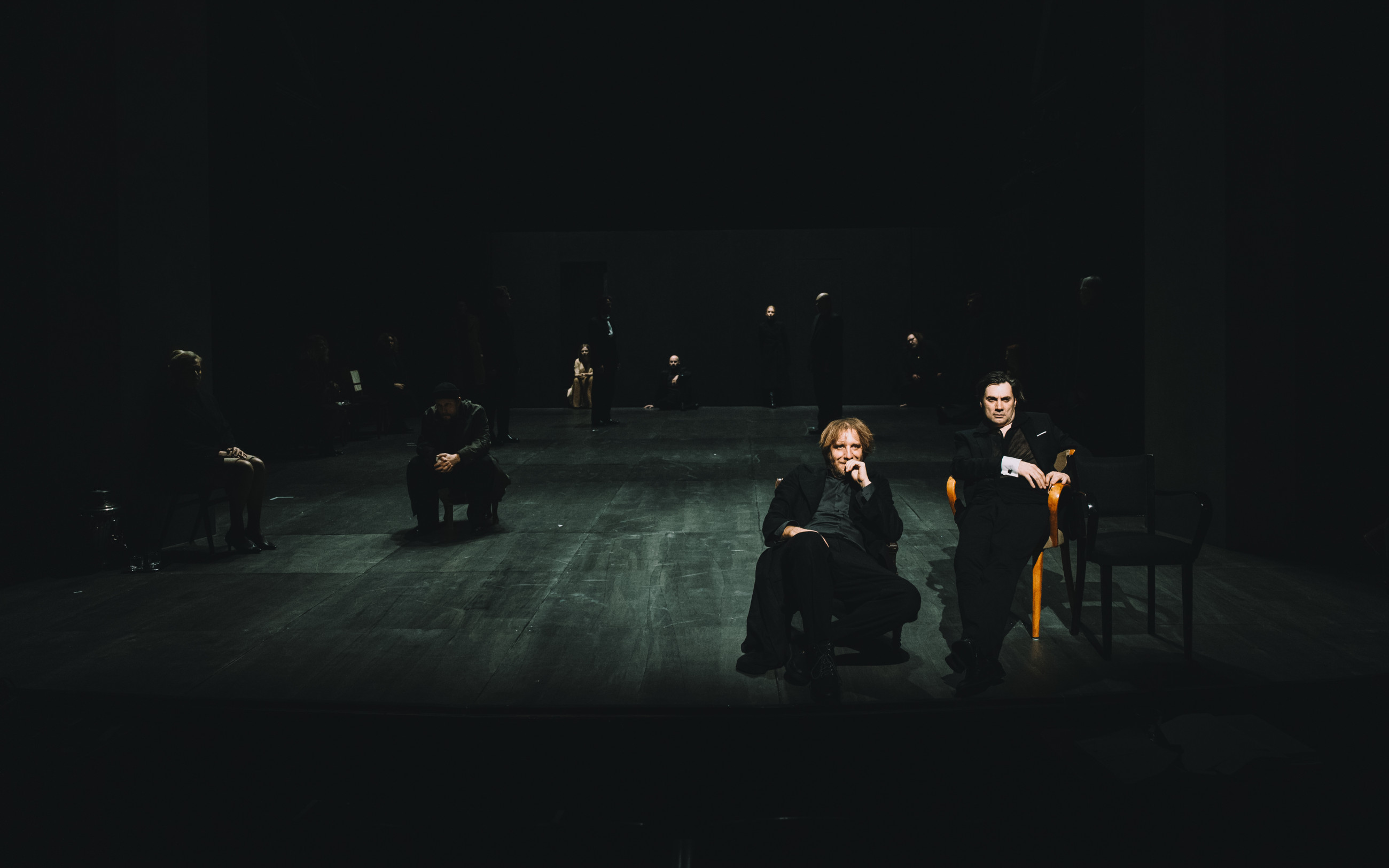Fjodor Mihajlovič Dostojevski, Goran Ferčec
Demons
In Demons, Dostoevsky presents life in the Russian Empire in the 1860s and describes the rise of the movements that led to the Bolshevik Revolution. In a fictional Russian city, an extremist revolutionary group seeks to overthrow the government, undermine the church and rise to power. Its members, educated and intelligent but insensitive, do not care in the least about the distinction between good and evil. They, therefore, don’t choose their means to achieve their ends.
The group is led by Stavrogin, the charismatic aristocratic figure, and the incendiary upstart Verkhovensky. Stavrogin is entangled in several love webs, but he hides a dark secret – he once humiliated and plunged to death the most innocent of humans – a child. Verkhovensky, on the other hand, ominously orchestrates a revolution from the background. Gradually but surely, the events of the novel descend into general chaos. We witness suicides, visions of God, arson, lynching, murder, mistrust, friction between revolutionaries and the collective and exemplary sacrifice of a comrade from one’s own ranks. The end is tragic, as the revolution shows its true face and turns into its cruel opposite.
Dostoyevsky is regarded as a relentless interrogator of the conscience of society, of man, and especially of himself, and as the most comprehensive psychologist in world literature to date. In Demons he draws on his own life experience, as he was active in the 1840s as a member of the utopian-anarchist Petrashevsky Circle, for which he was arrested by the authorities and sentenced to death. He was already on the gallows when a pardon arrived, after which he served his sentence with forced labour in Siberia.
This time, Demons come before the Slovenian audience in a new dramatisation by Goran Ferčec, directed by Janusz Kica. According to Borut Kraševec, the third Slovenian translator of the novel after Vladimir Levstik and Janko Moder, it is high-time for the novel’s re-reading (and staging), as the world is bending under populist leaders or people who simply make noise on the political floor. The fact that Dostoyevsky did not describe specific events, but rather captured their essence and described the patterns and mechanisms used by man in the struggle for power, contributes to the novel’s renewed relevance.
Бесы, 1873
Dramatisation of the novel
World premiere of dramatisation
Premiere: 30. January 2026
Performance length is 3 hours and 15 minutes and has 1 pause.
Creators
Translator
Seta Knop
Director
Janusz Kica
Opening in January 2026

